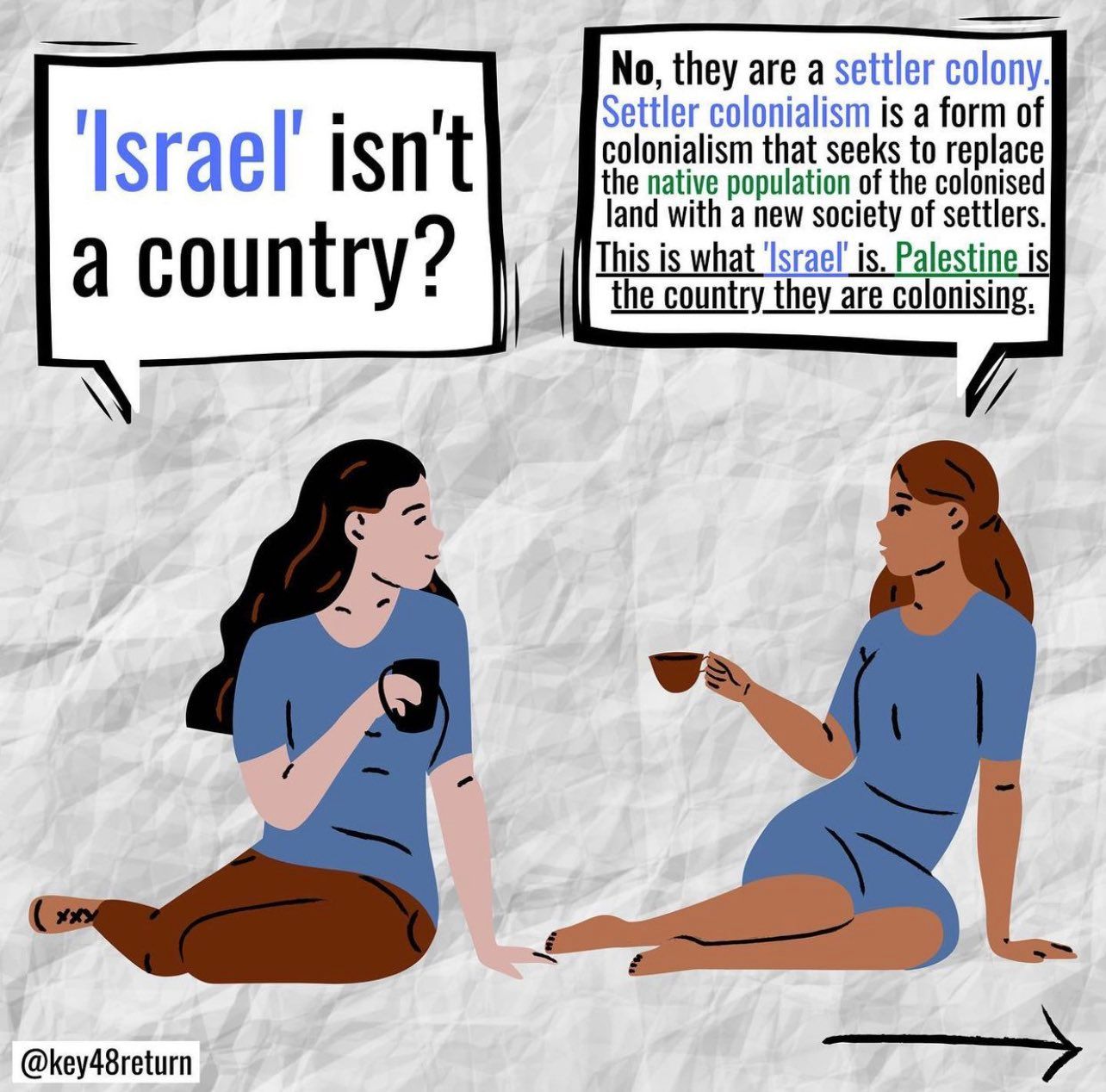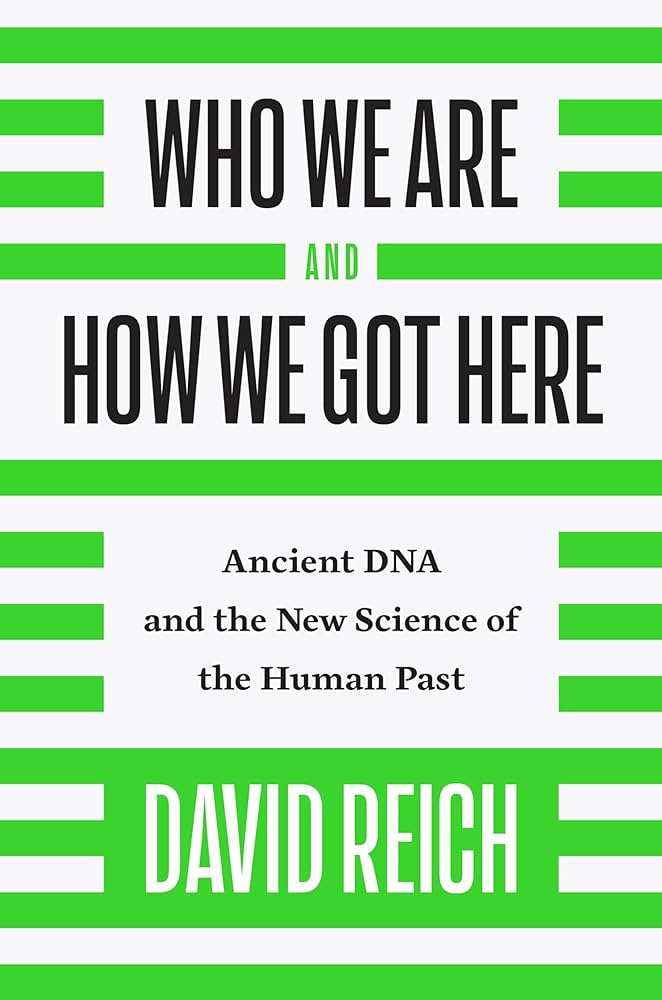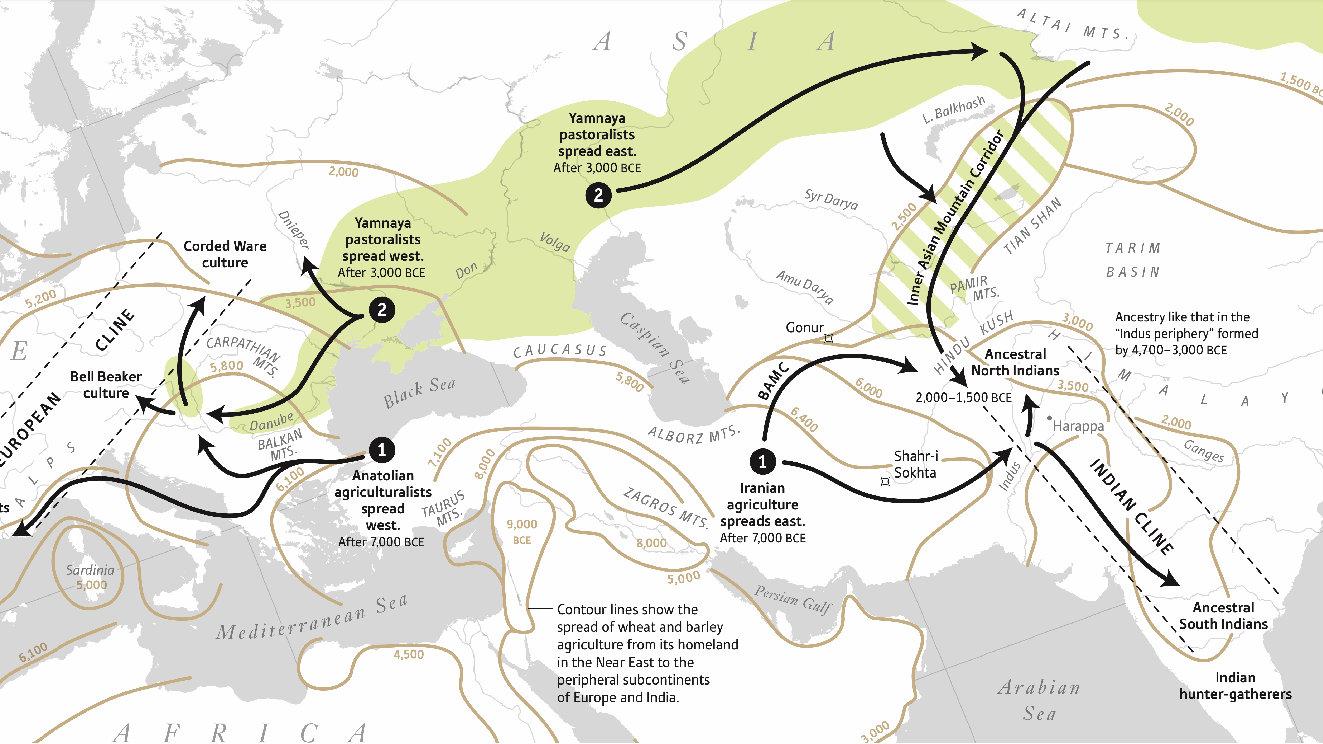Do nations have navels, or what does it mean to belong?
Considering the tension in our understanding of political societies, which we see as both socially constructed and natural at the same time.

I wrote last week about the knottiness of the Israeli-Palestinian conflict, and the way our reactions tend to draw on certain tacit intuitions we may have about justice and politics. I don’t normally revisit the same theme here, but I wanted to zoom out a bit to talk more about the establishment of nations.
One thing that I think the Israel-Palestine conflict reveals is the cognitive dissonance at work in how we think about nations—not because the issue is necessarily unique, but because it offers a particularly stark illustration of broader political phenomena. In particular, I think it shows the tension in our understanding of political societies, which we see as both socially constructed and natural at the same time.
One thing that was implicit in the previous essay but may warrant spelling out: given everything we know about both the specific history here and the development of nationalism, it is highly unlikely that a Palestinian state would have emerged in the absence of Zionism. Yet I suspect a substantial number of anti-Zionists are operating on the default assumption that a Palestinian state was the natural one, and its creation was interrupted by the introduction of Zionism as a kind of invasive species.

I think this is an understandable belief, but it requires a counterfactual that can’t really support the historical load it’s asked to bear. This is first because there simply was not a widespread movement for sovereign Palestinian statehood prior to Israel’s independence, but also because the other regional powers were unlikely to have ceded territory on the basis of another group’s national aspirations.
For the first, it’s not that Palestinian nationalism didn’t exist, but nationalism is historically an elite-driven project, and the ties between elites and mass sentiment were thin on the ground in Mandatory Palestine, while elites themselves were factionally divided. To complicate things further, Palestinian nationalism arose as an imitation of Zionism. This isn’t itself remarkable; Zionism itself emulated the nationalist movements of the post-revolutionary Europe. But it means we don’t have a ready counterfactual for the emergence of Palestinian nationalism sans Zionism.
Similarly, if we imagine a situation where Zionism took hold but failed to secure victory in the war of 1948 (really 1947-49), it is unlikely that Palestinian sovereignty would have resulted. The inhabitants of Mandate Palestine would have come under the rule of Egypt, Jordan, Syria, et al., all of which had established state capacity, and none of which has subsequently demonstrated much solicitousness for the Palestinian cause beyond what their own national interests suggested.
The Palestinian nationalism that actually did emerge was largely the product of the “Nakba,” supercharged by Israel’s territorial acquisitions in the 1967 war. So, what we see today is the result of the material dispossession which took place around 1948 subsequently married to retroactive claims of national dispossession.
Again, none of this invalidates Palestinian nationalism today. Indeed, I should stress here that I’m not saying that losing (or failing to gain) a state invalidates any particular group’s nationalism. It would be especially ironic in this case anyway, seeing as the Jews were the original paradigmatic case of retaining identity well after the loss of anything resembling sovereign self-rule, having managed this feat following the destruction of both the First and Second Temple (it is partly for this reason that they came to play a critical conceptual role in the development of modern nationalism).
Nonetheless, we tend to hold certain assumptions about what might be the “natural” borders or population of a given country, even if we would hesitate to actually use the term “natural” to describe them. Take South Africa, to which Israel is now increasingly being compared, for example.

South Africa is an interesting case. First because it appears to us as such a clear instance of settlerism. Then because its settlers were obliged to deal with the preexisting populations not as diminished minorities but as a substantial majority, which they elected to do via apartheid. Finally, because it appears to be a paramount case of successful decolonization in the post-Cold War world, as the all-white government was compelled through a combination of economic pressure and moral suasion to dismantle the apartheid regime.
Few people would want to defend apartheid now, premised as it was upon racist domination. But I suspect that for those who opposed it at the time, alongside the repugnance for the regime itself was the sense that somehow the white heirs of the Boers were not just ruling unjustly but in fact didn’t really belong there in the first place. (Similarly, a fair bit of anti-Zionist critique tends to over-emphasize the idea of Israelis as European arrivistes, which describes less than half the country.)
It is very easy of course to look at those pale blonde Afrikaans cross-referenced with a map of southern Africa and think “one of these is not like the other.” But then (speaking as an American here) I recall that the first settlers arrived there as early as 1652 and to this day there are farmers who can trace their family back 12 generations before they end up in Europe. One way to put this is that their Dutch forebears left the Netherlands before there was a Netherlands. Another way to put it is that they arrived half a century after the first permanent French trading bases in eastern Canada and just a few decades after the English settlers of Jamestown.
I don’t mean by any of this that there is some easily demarcated cut-off point past which you get to call yourself a true resident of wherever it is you reside. For one thing, the how matters as much as the when.
The How
The ancient Athenians, like other Greeks, held a number of myths about their city. I recently told my children the story of how Poseidon and his niece, Athena, competed for the honor of becoming Athens’ patron deity (you should be able to figure out who won). One of their central myths concerned their autochthonous origins: according to various stories, their first kings were descended not from other men and women but had sprung up from the very soil of Attica (hence “autochthonous,” meaning “from the earth itself”).
Such stories are in fact quite common, and not just in ancient Greece; they reflect an understandable desire to anchor one’s people and one’s community to the land they reside upon (not least, when that territory has had to be defended by force of arms).
We ourselves, particularly those living in multicultural societies today, seem to have mixed feelings about that desire. We want, I think, to acknowledge the legitimacy of indigenous roots without encouraging nativism or xenophobia. (The academic and academic-influenced left seems to have settled on the cognitively dissonant position that indigeneity is quite real for some groups (e.g., Canada’s First Nations) but a dangerous myth for others (e.g., Swedes).)
The matter is that rootedness itself is always a matter of time; the further back you go the more likely you are to find semi-nomadic movement and conquest. Several years ago, David Reich, a Harvard scientist who studies the population genetics of ancient humans, published a fascinating book on, well, the subject of the population genetics of ancient humans. The major theme of the book is that, thanks to revolutionary genomic techniques, we are able to generate a much more substantial picture of the history of our species, even where human-made artifacts or records are otherwise scarce or nonexistent.

A minor theme of the book is that much of that history isn’t pretty. The endpaper depicts a map of the world with the legend “30 Population Mixtures,” with a key listing major events going back over 70,000 years. You have to read the book itself, however, to really understand just what that process of mixing entailed.
I noticed that when Reich’s book came out, many of the reviewers and interviewers emphasized the role of movement and intermixture in the paleoanthropology of our species. This is true in a sense, and one can certainly take from these findings that there is ultimately no such thing as true indigeneity or pure nationhood. We pretty much all ultimately come from somewhere else, and we pretty much all are the product of various intermixtures of population groups that only now seem homogenous in retrospect. Just think of how the first tomatoes only arrived in Italy in the 16th century and apply that same logic to peoples…
But it is also true that one can only make sense of this story by recognizing the terrible role of conquest and mass killing in bringing about this outcome. Well before Cortez took Tenochtitlan or even before the Greeks sacked Troy, the agriculturalists who peopled a sizable chunk of Europe were overrun by semi-nomadic herders out of Central Asia, armed with the wheel and the horse, known today as the Yamnaya.

We can now determine from analysis of genome-wide ancient DNA that the maternal lines of the existing European populations continued, but the male Y chromosome was largely replaced by the new invaders. In other words, the men were wiped out and the women were kept by the victors. Euripides’ The Trojan Women provides a shattering depiction of this kind of process.
Invaders from the steppe would also come to dominate Persia and much of the Indian subcontinent (it is thanks to this common ancestry that we can today speak of an Indo-European language family). If you are reading this in other words there’s a decent chance you are the ultimate (so far) product of slaughter, conquest, rapine, and something less than wholly consensual miscegenation. Your mileage may vary of course, but I personally find this terrifying.

Moreover, I think the ethical problem with any line of reasoning that justifies our conduct by this history is pretty clear: we’re all living over someone else’s bones—the Yamnaya weren’t even the first. What, after all, happened to the Neanderthals in Europe or the Denisovans in Asia, or for that matter to the megafauna of the Americas who appear to disappear from the fossil record not long after the arrival of anatomically modern humans? So, what does it matter who takes what now—the weak are meat the strong do eat, etc.
This logic is horrifying but also self-defeating. As Abraham Lincoln pointed out, the slaveowners’ defense of their practices by right of superiority only justified their own enslavement by their own superiors. Of course, in practice most people find ways to justify whatever plunder contributed to their own happy situation while denying the legitimacy of any developments that might disenfranchise them. Consistency isn’t the point. That said, there are good prudential reasons for deciding to accept a certain status quo, however arbitrary, in the interest of avoiding perpetual chaos. This is more or less Thomas Hobbes’ counsel.
In the concluding remarks to his Leviathan, he sensibly argues that those living in the kinds of peaceable societies his work aims to design ought not inquire too closely about the origins of those societies, just as their rulers ought not insist too stridently on justifying the actions that first brought them or their ancestors to power:
Therefore I put down for one of the most effectual seeds of the death of any state, that the conquerors require not only a submission of men’s actions to them for the future, but also an approbation of all their actions past; when there is scarce a Commonwealth in the world whose beginnings can in conscience be justified.
Accepting this reality is less an endorsement of injustice than a teaching of prudence. Incidentally, it is also roughly the same logic that underpins the modern state system: we mostly try to maintain the present division of borders without (unless we are ideologically interested) arguing for their perfect rationality. Hence some of the shock when Vladimir Putin finally invaded Ukraine with the goal of redrawing certain post-Cold War boundaries. It was one thing when a hegemon like the United States forced Serbia to let Kosovo go. It is another thing to think that all territorial settlements are up for grabs by ambitious powers the world over.
But to return to the troubling logic of conquest, I do find myself wondering how much what troubles us isn’t just the possibility of our own dethroning (as Chronos toppled Uranus, and Zeus toppled Chronos, so too will Zeus one day be replaced). Part of that sense of disquiet has to do with our uneasy conscience. Not just uneasiness about the morality of our past actions, the way that Bolingbroke can never quite seem to convince himself that his revolt against Richard II was in fact just in Shakespeare’s Henriad. But uneasiness about the notion that we might live in such a moral universe; the fear, in other words, not that we will be punished for our transgressions but the fear that we won’t.
And beyond that still, there must be some cosmic uneasiness here; how can we ever be at home in such an unfeeling universe? I think here of the classic horror short story “Men Without Bones.” It at first seems to be a tale of alien discovery: somewhere deep in the Amazon are found repulsive humanoids that arrived here by extraterrestrial means. In the surprise denouement, it emerges that (spoiler alert), we humans are the aliens, and they the remnant of the original native population of Earth. Something like this realization must confront us when we contemplate the cycles of conquest that make up our history and prehistory–that we are the aliens–and I think no amount of Burkean appeals to tradition or Heideggerian appeals to rootedness can shake it.
Notes From a Rootless Cosmopolitan

I myself am very much the descendant of Ellis Islanders, from the Pale of Settlement on one side and the Mezzogiorno on the other (the official term is “Jewtalian”). These generations have always had a certain romance about them, and it is conventional for contemporary ethnic types who trace their families’ arrival to the pre-1924 waves of immigration to adopt a sentimental and idealized view of the whole process of migration and assimilation. (In many ways this period represents the sweet spot of Americanization, because you get to absolve your ancestors of some of our darker national legacies like slavery or the western conquest, but you can still claim participation in the 20th century rise to global pre-eminence.)
This rose-tinted portrait is of course highly misleading. For one thing, it contains a good deal of survivorship bias. Prior to 1924, as many as 40% of immigrants to America ultimately returned to their home countries. But it also misleads about the subjective experiences of those who stayed.
The historian Susan Matt has a remarkable book called Homesickness: An American History. It stands out for me because, despite not being otherwise an area of personal scholarly interest, it is one of those volumes that radically shifted my own understanding of an important theme—in this case the actual process of Americanization as experienced by those who carried out. While we retain a certain Tocquevillian image of Americans as highly mobile, optimistically seeking their fortunes where it could be found, unfettered by the constraints of tradition, the truth is more complex. A spirit of restless wandering was less an innate national characteristic than something that had to be cultivated out of necessity and with great difficulty. As above, many simply returned to their home countries; others wrestled with profound homesickness throughout their lives, for the benefit of subsequent generations who would simply perceive these alien landscapes as home.
This longing for what is heimisch is, I suspect, general and not contingent on the objective quality of this or that place. Rome is one of the greatest cities on earth, and Baltimore is, um, not, but I can still recall the intense wave of homesickness I felt for the latter while living in the former and listening to Tom Waits’ Nighthawks at the Diner. This is I am sure a nearly universal impulse (attachment to one’s place of home, not diners specifically). We must make our homes where we can, and over time we make countries of those homes.
But I also wonder whether there must be something inherent in certain landscapes that seems to invite or repel. We Americans may still think of Jamestown as the beginning, but before Jamestown there was the Roanoke colony, more than 100 of whom mysteriously disappeared leaving only the single cryptic sign behind: CROATOAN. There remains something deeply unsettling about this episode… as though the landscape itself swallowed them up.
Speaking as an American now, I have always found this sense of disquiet in much of our literary tradition. Hawthorne and Melville surely knew it. And I have never gone camping anywhere in the United States or Canada without feeling it. The sublimely gorgeous but somehow desolate landscape shouting in a thousand voices: YOU ARE NOT WANTED HERE.
But then I imagine the earlier inhabitants of the Americas, prior to First Contact—those to whom many of us now dedicate land acknowledgments as though to expiate the original sins of settlement and conquest. And I wonder if perhaps they simply felt at home here without self-consciousness or alienation. But then I recall what we know of their own cycles of conquest, the rise and fall of confederations and leaders, the ever-changing hunting grounds. The thousand-year epic by which they and their descendants traversed from Beringia to Tierra del Fuego.
And maybe they contemplated the same vast sky wheeling about the trackless continents and felt the same dark, holy terror.
